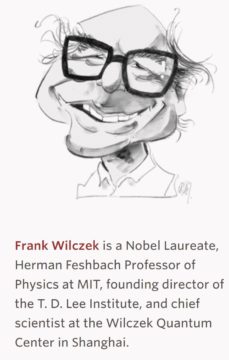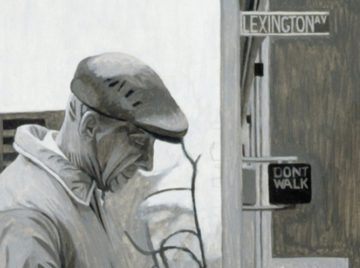Gabriel Popkin in Science:

Last summer, Friederike and Jörg von Beyme stood on a bramble-covered, Sun-blasted slope outside this small town in eastern Germany. Just 4 years ago, the hillside, part of a nearly 500-hectare forest the couple bought in 2002, was green and shady, covered in tall, neatly arranged Norway spruce trees the couple planned to cut and sell. During January 2018, however, a powerful storm felled many of the trees. Then, over the next 3 years, a record drought hit Germany and much of Central Europe, stressing the spruces that still stood. The back-to-back disasters enabled bark-boring beetles that had been munching on dead trees to jump to drought-weakened ones. Beetle populations exploded. In just 3 weeks, towering spruces that had seemed healthy were dead.
The von Beymes salvaged what they could, rushing to log and sell the dead and diseased trees. But thousands of other forest owners did the same, causing the timber market to collapse. The couple’s piles of logs were worth less than what it had cost to cut and stack them. Now, they don’t expect to earn a profit from logging spruces for 20 years. “We have a big forest now with big problems,” Jörg von Beyme says. The von Beymes are far from alone. Since 2018, more than 300,000 hectares of Germany’s trees—more than 2.5% of the country’s total forest area—have died because of beetles and drought fueled by a warming climate. The massive dieback has shocked the public. And it has raised hard questions about how a country renowned for inventing “scientific” forestry more than 3 centuries ago should manage forests so they can continue to produce wood and protect ecosystems in the face of destablizing climate shifts.
Everyone agrees that new approaches are needed, but no one, it seems, can agree on what those should be. Some advocates want Germany’s government and forest industry to stop promoting the widespread planting of commercially valuable trees such as Norway spruces, and instead encourage landowners to allow forests to regenerate on their own. Others say that to meet economic, environmental, and climate goals, Germany must double down on tree planting—but using more resilient varieties, including some barely known in Germany today. The stakes are high: Germany’s forest products sector generates some €170 billion annually and employs more than 1.1 million people. If its wood supplies dwindle, pressure could grow to log forests elsewhere around the world. Declining forests could also imperil efforts to replace building materials that generate huge emissions of greenhouse gases, such as concrete and steel, with potentially climate-friendlier wood.
More here.
 A blurb on the cover of my copy of Lolita calls the novel “the only convincing love story of our century.”1 In the 1986 Vanity Fair essay from which this endorsement was drawn, the author—novelist Gregor von Rezzori—goes on to describe Vladimir Nabokov’s incendiary work as “a deeply touching story of unfulfillable longing, of suffering through love, love of such ardor that though it concentrated on its subject monomaniacally, it actually aimed beyond it, until it flowed back into the great Eros that had called it into being.”2 The publisher’s own back-cover description echoes Rezzori’s assessment: “Most of all,” the prospective reader is told, Lolita is “a meditation on love—love as outrage and hallucination, madness and transformation.”
A blurb on the cover of my copy of Lolita calls the novel “the only convincing love story of our century.”1 In the 1986 Vanity Fair essay from which this endorsement was drawn, the author—novelist Gregor von Rezzori—goes on to describe Vladimir Nabokov’s incendiary work as “a deeply touching story of unfulfillable longing, of suffering through love, love of such ardor that though it concentrated on its subject monomaniacally, it actually aimed beyond it, until it flowed back into the great Eros that had called it into being.”2 The publisher’s own back-cover description echoes Rezzori’s assessment: “Most of all,” the prospective reader is told, Lolita is “a meditation on love—love as outrage and hallucination, madness and transformation.”
 Variants in
Variants in The Biden administration’s mantra for the Middle East is simple: “end the ‘forever wars.’” The White House is preoccupied with managing the challenge posed by China and aims to disentangle the United States from the Middle East’s seemingly endless and unwinnable conflicts. But the United States’ disengagement threatens to leave a political vacuum that will be filled by sectarian rivalries, paving the way for a more violent and unstable region.
The Biden administration’s mantra for the Middle East is simple: “end the ‘forever wars.’” The White House is preoccupied with managing the challenge posed by China and aims to disentangle the United States from the Middle East’s seemingly endless and unwinnable conflicts. But the United States’ disengagement threatens to leave a political vacuum that will be filled by sectarian rivalries, paving the way for a more violent and unstable region. On August 1 the Movement for Black Lives (M4BL), a coalition of over sixty organizations, rolled out “
On August 1 the Movement for Black Lives (M4BL), a coalition of over sixty organizations, rolled out “
 Daniel Borzutzky’s poetry is not an easy, elegant read: trauma, prisons, torture, murders, and arresting phrases like “rotten carcass economy” and “the blankest of times” recur ad nauseam. To read Borzutzky is, in other words, to reckon with the “grotesque.”
Daniel Borzutzky’s poetry is not an easy, elegant read: trauma, prisons, torture, murders, and arresting phrases like “rotten carcass economy” and “the blankest of times” recur ad nauseam. To read Borzutzky is, in other words, to reckon with the “grotesque.” Quantum mechanics is nearly one hundred years old, and yet the challenge it presents to the imagination is so great that scientists are still coming to terms with some of its most basic implications. Here I will describe some theoretical insights and recent experimental results that are leading physicists to revise and expand their ideas about what quantum-mechanical particles are and how they behave. These new ideas are centered around a topic traditionally known as quantum statistics. The name is misleading: the basic physical phenomena do not involve statistics in the usual sense. A better title might have been the quantum mechanics of identity, but the new developments make that name obsolete too. A more accurate description would be the quantum mechanics of world-line topology. Since that is quite a mouthful, most researchers now simply refer to anyon physics.
Quantum mechanics is nearly one hundred years old, and yet the challenge it presents to the imagination is so great that scientists are still coming to terms with some of its most basic implications. Here I will describe some theoretical insights and recent experimental results that are leading physicists to revise and expand their ideas about what quantum-mechanical particles are and how they behave. These new ideas are centered around a topic traditionally known as quantum statistics. The name is misleading: the basic physical phenomena do not involve statistics in the usual sense. A better title might have been the quantum mechanics of identity, but the new developments make that name obsolete too. A more accurate description would be the quantum mechanics of world-line topology. Since that is quite a mouthful, most researchers now simply refer to anyon physics. Last week, in its
Last week, in its  “We were superior to the god who had created us,” Adam recalled not long before he died, age seven hundred. According to The Apocalypse of Adam, a Coptic text from the late first century CE, discovered in Upper Egypt in 1945, Adam told his son Seth that he and Eve had moved as a single magnificent being: “I went about with her in glory.” The fall was a plunge from unity into human difference. “God angrily divided us,” Adam recounted. “And after that we grew dim in our minds…” Paradise was a lost sense of self, and it was also a place that would appear on maps, wistfully imagined by generations of Adam’s descendants. In the fifteenth century, European charts located Eden to the east, where the sun rises—an island ringed by a wall of fire. With the coordinates in their minds, Europe’s explorers could envisage a return to wholeness, to transcendence, to the godhood that had once belonged to man.
“We were superior to the god who had created us,” Adam recalled not long before he died, age seven hundred. According to The Apocalypse of Adam, a Coptic text from the late first century CE, discovered in Upper Egypt in 1945, Adam told his son Seth that he and Eve had moved as a single magnificent being: “I went about with her in glory.” The fall was a plunge from unity into human difference. “God angrily divided us,” Adam recounted. “And after that we grew dim in our minds…” Paradise was a lost sense of self, and it was also a place that would appear on maps, wistfully imagined by generations of Adam’s descendants. In the fifteenth century, European charts located Eden to the east, where the sun rises—an island ringed by a wall of fire. With the coordinates in their minds, Europe’s explorers could envisage a return to wholeness, to transcendence, to the godhood that had once belonged to man. The roots of the modern terrarium can be traced to a 19th Century experiment by Nathaniel Bagshaw Ward, an English doctor who also studied botany and entomology. Ward’s interest seems to have arisen from a journey to Jamaica as a 13-year-old boy, when he fell in love with the exotic plant life. Growing up, he developed a large collection of specimens, but he was disappointed to find that many species – particularly the ferns and mosses – failed to thrive in his east London garden, thanks, in large part, to the air pollution of the city. The UK was, after all, in the midst of the Industrial Revolution, meaning that his house was
The roots of the modern terrarium can be traced to a 19th Century experiment by Nathaniel Bagshaw Ward, an English doctor who also studied botany and entomology. Ward’s interest seems to have arisen from a journey to Jamaica as a 13-year-old boy, when he fell in love with the exotic plant life. Growing up, he developed a large collection of specimens, but he was disappointed to find that many species – particularly the ferns and mosses – failed to thrive in his east London garden, thanks, in large part, to the air pollution of the city. The UK was, after all, in the midst of the Industrial Revolution, meaning that his house was 
 For the polymath, there is always a cardinal subject, a chief preoccupation around which all the other interests spin. For the fashion designer Virgil Abloh, the polymath of his cohort, who died on Sunday of a rare cardiac cancer, offensively too young, the center was architecture. He studied as an architect, and the training never really left him, even as he ventured into other arts. Abloh’s thinking was organizational, spatial, and mind-numbingly lofty. He longed to build an intricately structured life for his muse, the young Black man. Abloh designed not only this man’s clothing but also his shoes, the music he listened to in order to prime himself for the workday, the furniture he looked upon before leaving for said workday, the shiny vernacular he used in his speech, the high-concept museum exhibition at which he could practice this speech. At forty-one years old, Abloh already did all that, and so the question coursing through the minds of his mourners, whose lives had been quite literally stamped with the fruits of his imagination, is this: What was next?
For the polymath, there is always a cardinal subject, a chief preoccupation around which all the other interests spin. For the fashion designer Virgil Abloh, the polymath of his cohort, who died on Sunday of a rare cardiac cancer, offensively too young, the center was architecture. He studied as an architect, and the training never really left him, even as he ventured into other arts. Abloh’s thinking was organizational, spatial, and mind-numbingly lofty. He longed to build an intricately structured life for his muse, the young Black man. Abloh designed not only this man’s clothing but also his shoes, the music he listened to in order to prime himself for the workday, the furniture he looked upon before leaving for said workday, the shiny vernacular he used in his speech, the high-concept museum exhibition at which he could practice this speech. At forty-one years old, Abloh already did all that, and so the question coursing through the minds of his mourners, whose lives had been quite literally stamped with the fruits of his imagination, is this: What was next? If childhoods have leitmotifs, mine was the steady, subtle, though sometimes bullying insistence on the unsurpassed importance of my Jewish American identity. On one side of my two-track upbringing, there was the uncontested conviction that Jews were the chosen people, the main players in God’s plan for humanity; on the other side, the daily pledge of allegiance to the American Republic, in all its shining-city- on-a-hill exceptionalism. How it is that my self-importance is not positively Trumpian is as big a mystery as why Muammar al-Qaddafi took over Libya and declared himself colonel, not king, or why, as John Berryman once wondered, cats love fish and hate water.
If childhoods have leitmotifs, mine was the steady, subtle, though sometimes bullying insistence on the unsurpassed importance of my Jewish American identity. On one side of my two-track upbringing, there was the uncontested conviction that Jews were the chosen people, the main players in God’s plan for humanity; on the other side, the daily pledge of allegiance to the American Republic, in all its shining-city- on-a-hill exceptionalism. How it is that my self-importance is not positively Trumpian is as big a mystery as why Muammar al-Qaddafi took over Libya and declared himself colonel, not king, or why, as John Berryman once wondered, cats love fish and hate water. In the face of escalating
In the face of escalating  In the mid-2000s I set out, along with my colleagues Joseph Carroll, John Johnson, and Dan Kruger, on a large-scale study of classic Victorian novels by such authors as Jane Austen, George Eliot, and Charles Dickens, among many others. We distributed a survey to hundreds of knowledgeable people—professors, graduate students taking courses on Victorian literature, and authors who had published articles or books in the field. The respondents rated the attributes of characters in the novels exactly as if these fictional people were actual people.
In the mid-2000s I set out, along with my colleagues Joseph Carroll, John Johnson, and Dan Kruger, on a large-scale study of classic Victorian novels by such authors as Jane Austen, George Eliot, and Charles Dickens, among many others. We distributed a survey to hundreds of knowledgeable people—professors, graduate students taking courses on Victorian literature, and authors who had published articles or books in the field. The respondents rated the attributes of characters in the novels exactly as if these fictional people were actual people.